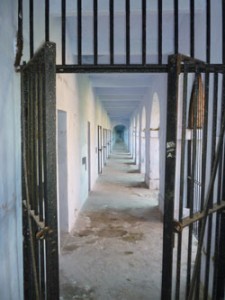
 The Carceral Archipelago’ is a 5-year project that has been funded by the European Research Council under the direction of principal investigator Professor Clare Anderson. It runs from 2013 to 2018. The project’s overall aim is to analyse the relationships and circulations between and across convict transportation and penal settlements and colonies, and coerced labour, unfree migration and confinement regimes of other kinds.
The Carceral Archipelago’ is a 5-year project that has been funded by the European Research Council under the direction of principal investigator Professor Clare Anderson. It runs from 2013 to 2018. The project’s overall aim is to analyse the relationships and circulations between and across convict transportation and penal settlements and colonies, and coerced labour, unfree migration and confinement regimes of other kinds.
The geographical scope of the project is wide. It incorporates all the global powers engaged in transportation for the purpose of punishment, expansion and colonization, from Portugal’s first use of convicts in North Africa in 1415 to the dissolution of Stalin’s gulags in 1960. Working together with Clare is a core team, comprising: project manager Anne Ablett, research associate Christian De Vito, two doctoral students, Carrie Crockett and Katy Roscoe, and researchers Takashi Miyamoto and Minako Sakata. We are fortunate also to have working with us for shorter periods research assistant Emma Joy Battell Lowman and researchers Eureka Henrich, Sarah Longair and Maureen Rail. Our University of Leicester undergraduate history intern for 2013/14 is Jamie Harris. Collectively, we are researching case studies from across Europe, the British, French, Spanish and Portuguese Empires, Latin America, Russia, Japan, and Africa. We are working in archives all over the world, and have an interest also in the long-term impact of penal transportation, including in convict heritage. At the heart of our work is a theoretical base that seeks to integrate the history of crime and punishment with new questions from global and postcolonial history, in particular on the role of coercion and confinement for labour, expansion and global divergence.
We aim to redefine what we mean by ‘transportation,’ to explore penal colonies as engines of global change, to connect convict transportation to enslavement, indenture and other forms of coerced labour and migration, and to define the long-term impacts of penal colonies on economy, society and identity. We will run a major international conference and workshop in 2015 and 2016, to widen the extent and reach of the project still further, and will launch a major web resource for academics, teachers and family historians in 2017. Meantime, you can find our webpage here [www.le.ac.uk/carchipelago]; and follow Clare on twitter @sysgak

 Subscribe to 's posts
Subscribe to 's posts
Recent Comments